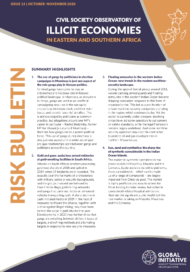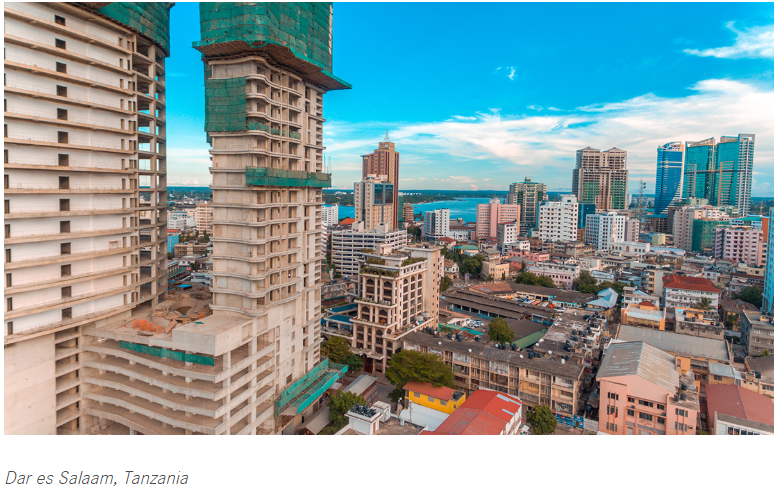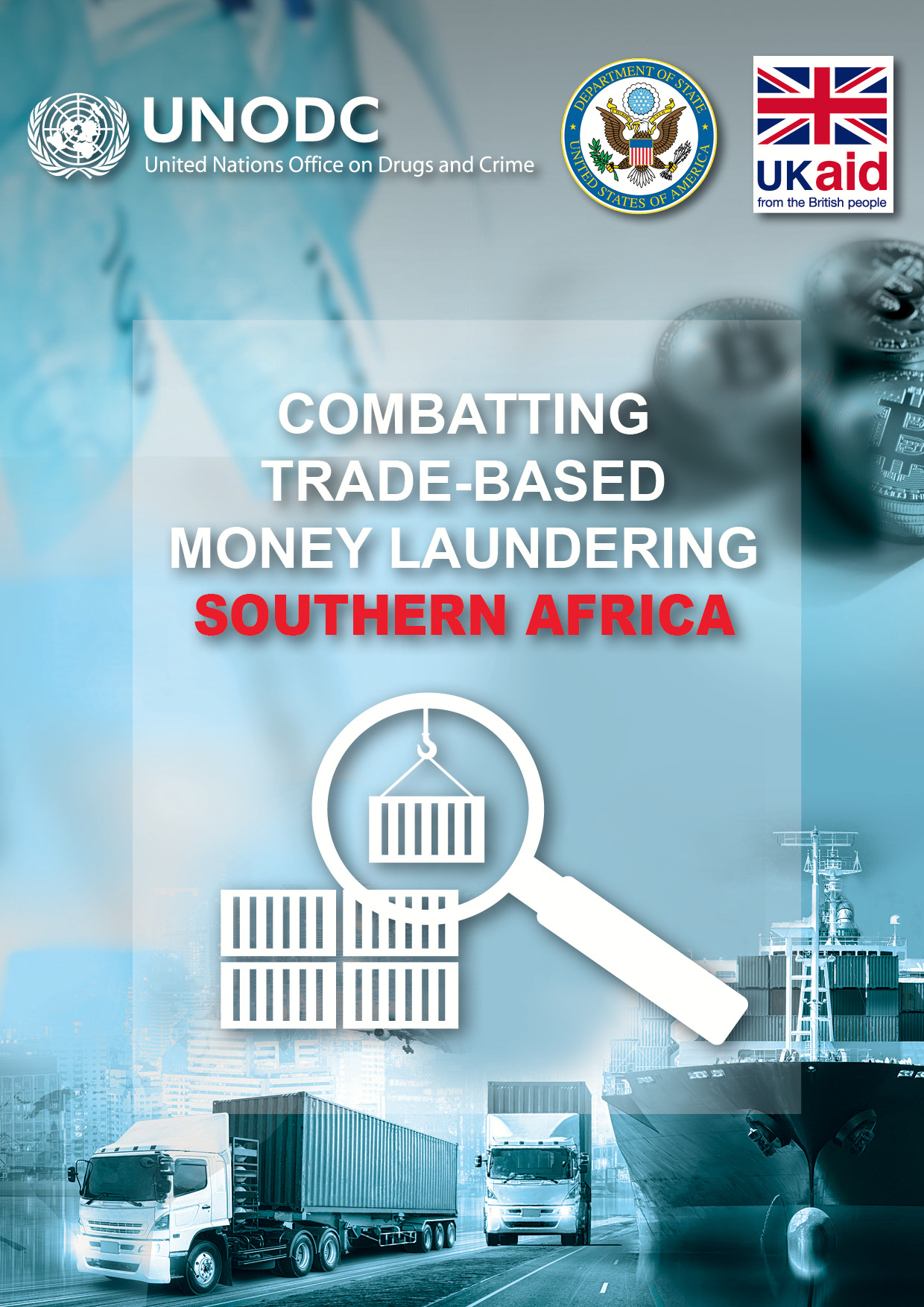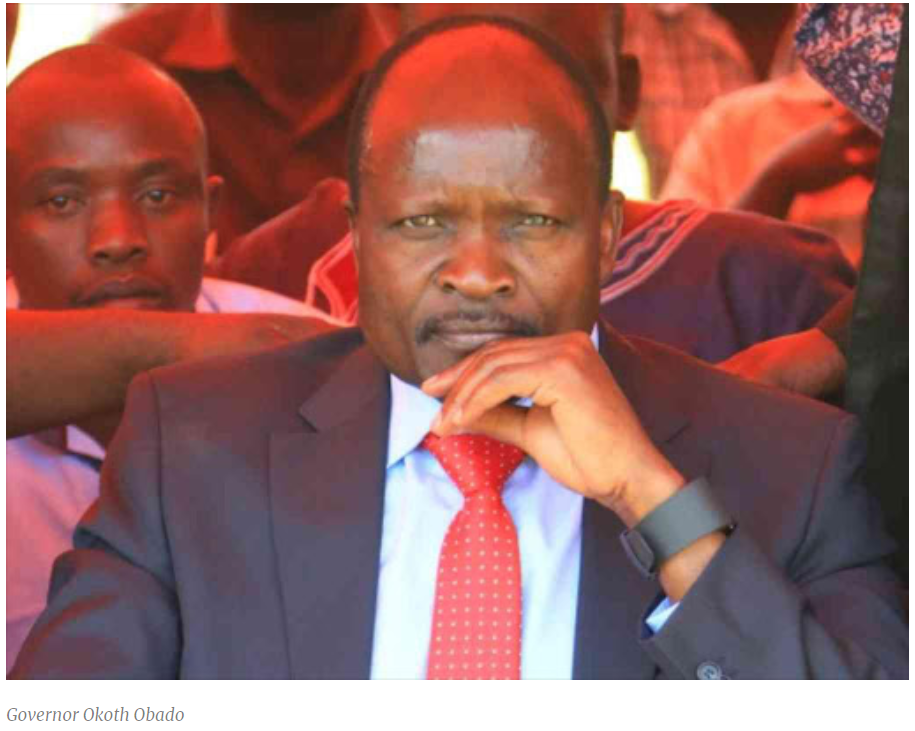The
scandal that kept ex-TRA boss Kitilya behind bars for 4 years
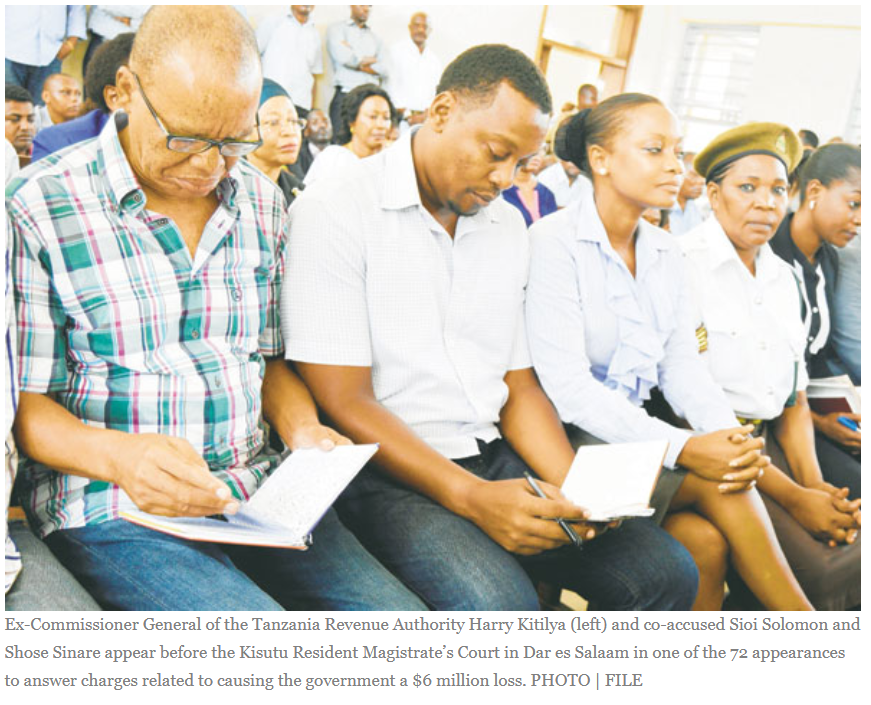
In
Summary
The scandal that kept ex-TRA boss behind bars for 4
years
By Bernard James @TheCitizenTz bjames@tz.nationmedia.com
Dar es Salaam. Former Tanzania Revenue Authority (TRA) commissioner general
Harry Kitilya, 70, and four other people breathed fresh air yesterday after
languishing in remand prison for four years in one of Tanzania’s high profile
and dramatic Sh12 billion ($6 million) bribery scandal.
The Corruption and Economic
Crimes Division of the High Court declared Kitilya, the 1996 Miss Tanzania and
former head of Investment Banking with Stanbic bank, Shose Senare, and former
chief legal officer to the bank Sioi Sumari free after they entered a plea
bargain agreement with the Director of Public Prosecutions (DPP) to pay a
whopping Sh1.5 billion for their freedom.
Others who walked free were
two senior officials of the ministry of Finance-- Bedason Shallanda and Alfred
Misana, who also entered a plea bargaining arrangement with the DPP.
The court ordered them to
jointly pay Sh1.5 billion on plea bargaining agreement and additional Sh1
million each to secure their freedom for causing the government a $6 million in
losses.
Plea bargaining was
introduced in the country last year and has mostly been the avenue for suspects
in mega corruption cases to escape full trial.
The four pleaded guilty of
causing the $6 million loss to the government before Lady Justice Immaculate
Banzi.
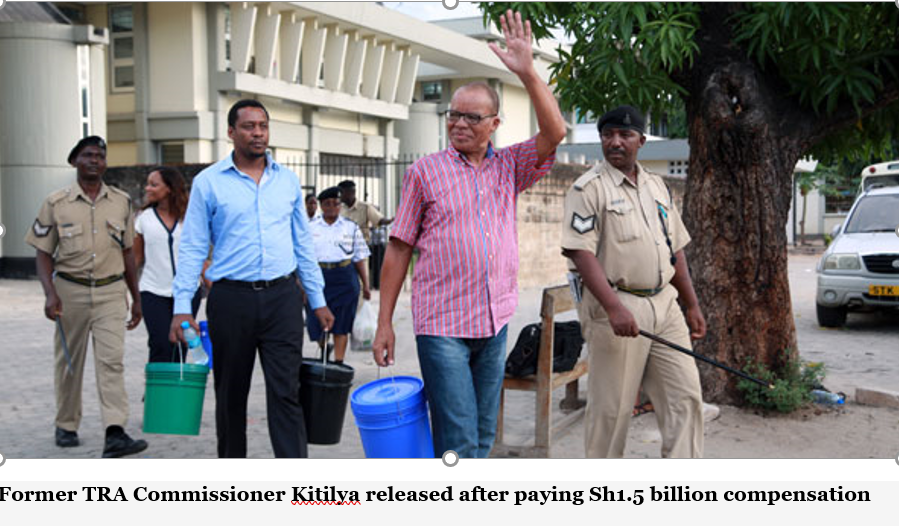

They
were facing charges of forgery, uttering false information and fraudulently
obtaining $6 million (about Sh12 billion) which was paid to them as a kickback
in facilitating the securing of the $600 million foreign loan by the government
of Tanzania.
Mr Kitilya’s firm, Enterprise
Growth Markets Advisors (EGMA), was allegedly paid the over Sh12 billion bribe
in the loan transaction.
How it started
The lucrative loan
facilitation deal that would lead high profile bribery scam started with an
idea in the US between Mr Kitilya and Ms Sinare during a meeting of the International
Monetary Fund (IMF) in Washington in April, 2012, and had conversation on
government financing.
The two later took their
dream to a top level, playing key roles in securing a $600 million foreign loan
for the government and opening a can of worms over mega corruption in the
country.
After the Washington meeting
in which both attended as part of a government delegation, Ms Sinare allegedly
boasted to fellow staff that Mr Kitilya introduced her to two African central
bank governors who convinced her bank to consider the business of raising funds
for the government.
Details of what followed came
to the limelight following investigations by UK’s Serious Fraud Office (SFO)
that exposed how the 2013 government loan was used to create the Sh12 billion
bribery conduit that benefited public and private corporate executives.
Details from SFO show how Ms
Sinare and Mr Kitilya’s EGMA, the firm that was paid the Sh12 billion in bribe
in the loan transaction, facilitated behind-the-scene talks to secure the deal.
Who played what role
SFO which carried out the
corruption investigation involving Stanbic and its main unity, Standard Bank’s
role, revealed a link between individuals who were central to the deal and how
they may have influenced it.
Other than the former TRA
chief who played a camouflage role as EGMA coprincipal, the negotiations were
handled at either stage by former finance minister Mustafa Mkulo, his successor
William Mgimwa, former Finance permanent secretary Ramadhan Khijja, former
finance permanent secretary Dr Servacius Likwelile, and other senior treasury
officials.
The two officials of the
Ministry of Finance, Bedason Shallanda, who was the commissioner for Policy
Analysis-Debts and Alfred Misana, the assistant commissioner for Policy
Analysis-Debts were joined in the case in January, 2019.
The two officials were
jointly facing one count of use of documents intended to mislead the principal
with the additional charge of leading organized crime, one count of money
laundering, obtaining money by false pretences and occasioning loss to the
government.
Court documents show that the
two officials acted on documents containing false statement to show that
Stanbic Bank (Tanzania) Limited in collaboration with Standard Bank London,
would raise the loan of $550 million for the government of Tanzania at an
agreement fee of 2.4 percent of the principal amount.
They were also accused of
using the Standard Bank’s Financing Proposal with the intention of misleading
the government.
Sioi together with Mr Kitilya
and Ms Sinare, allegedly prepared a false agreement dated November 5, 2012
purporting to show that the bank has established a consortium to collaborate
with EGMA Limited to arrange for the financing of the money.
The former taxman and the
ex-officials of Stanbic Bank, Ms Sinare and Sioi were arraigned on April 1,
2016 and they have since been languishing in jail for facing the unbailable
money laundering charge.
In a dramatic turn of events,
the DPP dropped all charges against Kitilya and two co-accused in January last
year and filed a new case with 58 new charges against them.
They have appeared at the
Kisutu Resident Magistrate’s Court over 72 times when the case against them was
called for mention, hearing of applications and rulings.
Yesterday, Lady Justice Banzi
said she considered submissions of both parties and the plea bargain agreement
and its execution mode and ordered each of the accused to pay Sh1 million in
court and another Sh1.5 billion to be paid jointly.
The plea bargaining agreement
between the accused and the DPP was filed in court on Monday for registration.
The agreement, among other
things, exonerated the accused of 57 out of 58 counts they face but sustained
one charge of causing Sh$6 million loss to the government, of which the accused
pleaded guilty and ordered to pay Sh1.5 billion.
The accused took an oath
before the judge questioned them on the voluntariness of the agreement and if
they have read them through and understood its stated terms.
The agreement also means the
accused denied themselves the right to have their case heard to the end and
decided on merits and the right to appeal on the same.
Under the agreement, the
accused may face fresh charges in return for a guilty plea if it is discovered
that they have given false information. All the accused agreed to the terms of
the contract.
Details of the plea bargain
were not made known to the public as the matter is completely a private
process.
Yesterday, DPP Biswalo Mganga
represented the Republic in person and asked the court to order the accused to
pay a Sh1.5 billion compensation for the loss they have caused to the
government as agreed in the plea bargain.
“All the accused, have
pleaded guilty to the charges. This court has convicted them all for pleading
guilty of causing a $6 million loss to the government,” said Lady Justice
Banzi.
Lead defence counsel Alex
Mgongolwa pleaded with the court to give a lenient punishment considering the
accused have confessed to the offences to save court time and government
resources.
He added that Mr Kitilya,
with 70 years of age, had underlying health conditions and that the accused who
have spent over four years behind bars have families depending on them.
